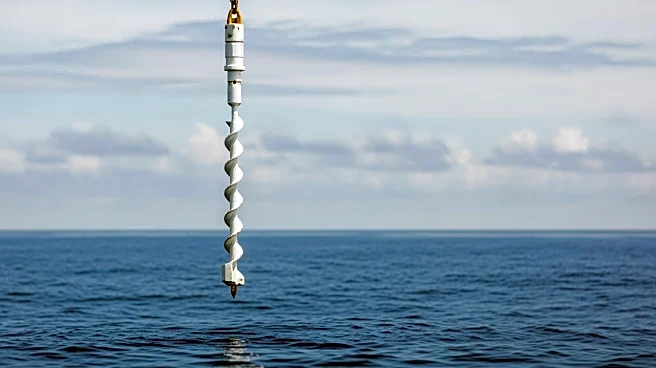What's Happening?
Petrobras, the Brazilian oil giant, has encountered a significant hurdle in its efforts to divest control of certain offshore oil fields. The National Agency of Petroleum, Natural Gas and Biofuels has rejected
Petrobras' request to conduct necessary tests to resume oil production at 13 shallow-water fields. This decision has stalled Petrobras' plans to transfer control of these fields to smaller companies, a move intended to mitigate the costs associated with dismantling old platforms. The fields in question were previously shut down during the early days of the COVID-19 pandemic when global energy markets collapsed. The decommissioning of these fields involves substantial costs, with estimates suggesting global spending on such activities could exceed $15 billion annually by 2033.
Why It's Important?
The stalled divestment of Petrobras' offshore fields highlights the financial and operational challenges faced by oil companies in managing aging infrastructure. The inability to transfer these fields to smaller operators means Petrobras must bear the decommissioning costs, which are significant and do not yield a return on investment. This situation underscores the broader industry trend where major oil producers seek to offload legacy assets to avoid the financial burden of decommissioning. The decision by Brazilian regulators also reflects the complexities of balancing environmental responsibilities with economic interests in the energy sector.
What's Next?
Petrobras is expected to continue its efforts to manage the financial implications of decommissioning its offshore fields. The company has included the wind-down costs in its latest five-year business plan, indicating a strategic approach to fulfilling its legal obligations. Meanwhile, the Brazilian regulatory agency may consider offering these assets in future licensing rounds, potentially attracting new operators willing to invest in the necessary infrastructure. The outcome of these developments will be closely watched by industry stakeholders, as it may influence future regulatory and investment decisions in Brazil's oil sector.









